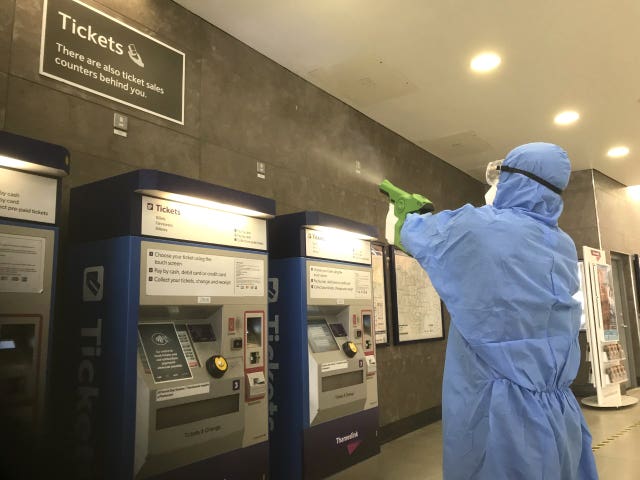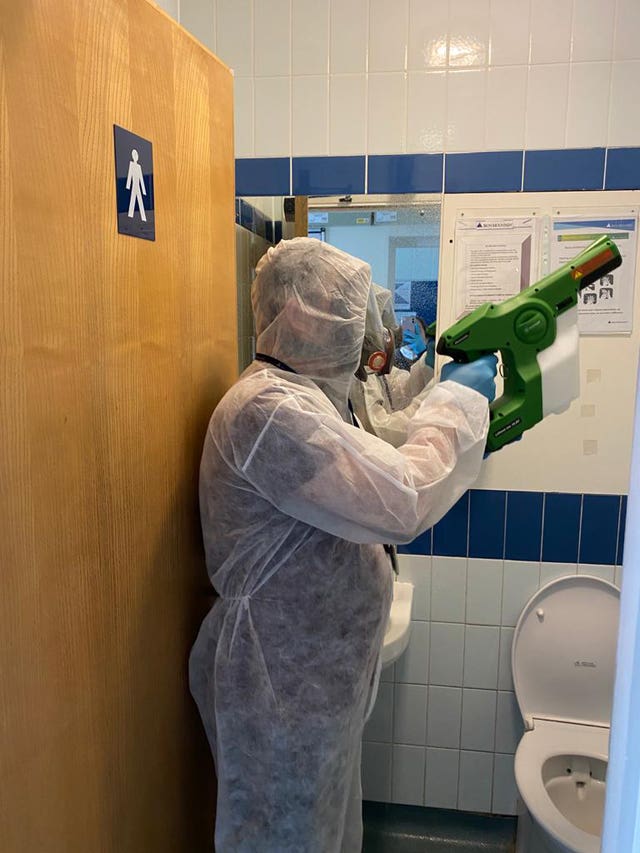Train firm using disinfectant which ‘will kill coronavirus for up to 30 days’
Govia Thameslink Railway pledged to apply the product every three weeks to ensure its effectiveness.

Britain’s largest rail franchise is using disinfectant which it claims will kill coronavirus on surfaces for up to 30 days.
Govia Thameslink Railway (GTR), which operates services across south-east England, said its trains, stations and staff areas have been treated with the powerful chemicals.
The firm pledged to apply the product every three weeks to ensure its effectiveness.
Staff are using electrostatic spray guns – which were used at the NHS Nightingale hospitals – to applying the disinfectant.
This is in addition to the daily use of anti-viral cleaning products which last for 24 hours.

GTR has 2,700 train carriages across Southern, Thameslink, Great Northern and Gatwick Express services.
Engineering director Steve Lammin said: “Since the outbreak of this pandemic we have been doing all we can to protect our passengers and staff by ensuring our trains and stations have enhanced cleaning regimes, and a switch in focus to high-touch areas and the increased use of anti-viral agents.
“We are now using a product that will kill coronavirus for up to 30 days and we are applying this to surfaces across our network on a 21-day cycle.

“We want to do everything possible to work with passengers and staff to keep them safe and this will further protect everyone who is working so hard for this country.”
Public transport operators across the country have stepped up their hygiene regimes during the coronavirus pandemic.
Many are increasing the frequency of their services as travel restrictions are eased, but people are urged to use other modes of transport if possible to enable social distancing.





